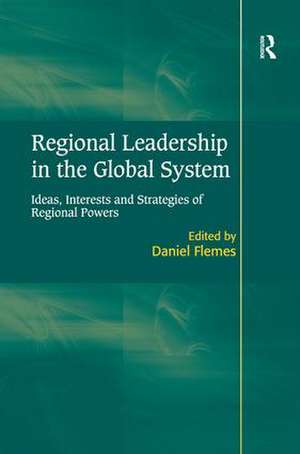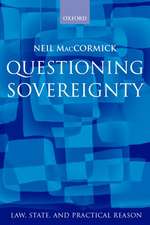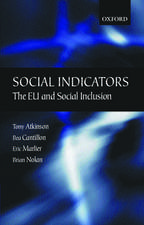Regional Leadership in the Global System: Ideas, Interests and Strategies of Regional Powers
Editat de Daniel Flemesen Limba Engleză Hardback – 28 mai 2010
Preț: 1109.18 lei
Preț vechi: 1352.65 lei
-18% Nou
Puncte Express: 1664
Preț estimativ în valută:
212.25€ • 226.96$ • 176.96£
212.25€ • 226.96$ • 176.96£
Carte tipărită la comandă
Livrare economică 17 aprilie-01 mai
Preluare comenzi: 021 569.72.76
Specificații
ISBN-13: 9780754679127
ISBN-10: 0754679128
Pagini: 406
Dimensiuni: 156 x 234 x 24 mm
Greutate: 0.45 kg
Ediția:1
Editura: Taylor & Francis
Colecția Routledge
Locul publicării:Oxford, United Kingdom
ISBN-10: 0754679128
Pagini: 406
Dimensiuni: 156 x 234 x 24 mm
Greutate: 0.45 kg
Ediția:1
Editura: Taylor & Francis
Colecția Routledge
Locul publicării:Oxford, United Kingdom
Notă biografică
Dr. Daniel Flemes, Senior Researcher at the GIGA German Institute of Global and Area Studies and Coordinator of the Regional Powers Network, Germany
Recenzii
'This comprehensive collection of essays takes up the important issue of what it takes to be a regional leader in today's international system. It offers a useful analytical framework for explaining such leadership and solid subsantive chapters that examine and characterize bona fide and would-be regional leaders in the contemporary world.' Thomas L. Ilgen, Pitzer College, USA 'This book gives interesting insights into the different dimensions of the foreign policy and leadership of rising powers, particularly on the ideational aspect of their policies... the book is a worthy source of case studies for analysing the foreign policies of emerging powers.' Millenium: Journal of International Studies
Cuprins
Introduction, Daniel Flemes, Detlef Nolte; prespective Regional Powers and the Global System from a Historical Perspective, Andrew Hurrell; Part 1 Theories and Analytical Concepts; Chapter 1 Dimensions of Hard Power: Regional Leadership and Material Capabilities, Douglas Lemke; Chapter 2 Power, Leadership and Hegemony in International Politics, Nabers Dirk; Chapter 3 The Foreign Economic Policies of Regional Powers in the Developing World, Philip Nel, Matthew Stephen; Part 2 Foreign Policy Strategies of Regional Powers; Chapter 4 Brazil: Strategic Options in the Changing World Order, Daniel Flemes; Chapter 5 India: Foreign Policy Strategy between Interests and Ideas, Salma Bava; Chapter 6 Israel: Regional Politics in a Highly Fragmented Region, Martin Beck; Part 3 Idea-driven Foreign Policies of Regional Powers; Chapter 7 South Africa: The Idea-driven Foreign Policy of a Regional Power, Deon Geldenhuys; Chapter 8 Iran and Venezuela: Ideology-driven Foreign Policies in Comparison, Susanne Gratius, Henner Fürtig; Chapter 9 Brazil: The Underlying Ideas of Regional Policies, Matias Spektor; Part 4 Domestic Factors’ Impact on Foreign Policies; Chapter 10 14., Mingjiang Li; Chapter 11 Russia: The Federal Relations’ Impact on Foreign Policy, Irina Busygina; Chapter 12 India: The Interaction of Internal and External Factors in Foreign Policy, Joachim Betz; Part 5 Implications for Europe and the US; Chapter 13 The European Union: ‘Regional Power’, ‘Global Pole’, ‘Paper Tiger’ – or What?, Hans J. Giessmann; Chapter 14 France, Germany, UK: Responses of Traditional to Rising Regional Powers, Hartmut Mayer; Chapter 15 USA: Responding to Rising Powers with a Grand Strategy or “Muddling Through”?, Mark Brawley; findings Findings and Perspectives of Regional Power Research, Douglas Lemke, Daniel Flemes;
Descriere
This collection emphasizes the role of regional powers in intra-regional, interregional and global contexts, analyzing the rise of regional powers from a comparative perspective. In so doing, the book explains how these powers have power to shape regional and global politics.




















